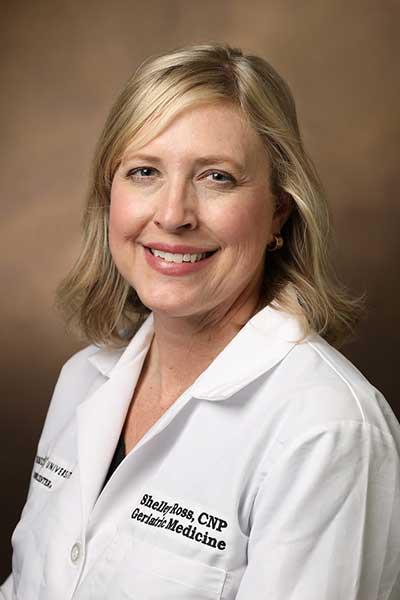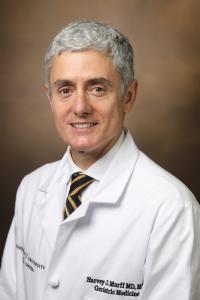Continuity gaps that occur in the transfer of patients from hospitals to skilled nursing facilities (SNF) present ongoing risks of disruption to the well-considered discharge plans of hospital specialists .
Yet, charting a path to smooth handoffs may be confounded by a lack of a shared EHR, payor policies, overburdened providers’ schedules and understaffing at the SNF, clinical researchers at Vanderbilt University Medical Center have found.
While responses to these broad problems are being debated at the national level, clinical researchers at Vanderbilt University Medical Center have adopted a nuts-and-bolts plan to bridge care gaps, one patient at a time.
“There are so many ways things can go wrong, fall between the cracks,” said Shelly Ross, A.P.R.N, who along with Kimberly Beiting, M.D., of the Adult Care for Elders unit, developed a consulting service called Transitions of Care to the Nursing Home. A cornerstone of the program is the warm handoff of patients, which has been shown to optimize follow-up care and lower readmissions for the 3,000+ patients who are discharged from Vanderbilt to SNFs each year.
“We make sure there is a person-to-person conversation between Vanderbilt and the facility, generally within 24 hours. These are often high-complexity patients who need close follow-up”
“We designed this consult based on a review of previous literature, as well as some of the Shed-MEDS work that has been done on the impact of mindful prescription review and intervention,” Beiting said.
“We are encouraging hospital providers to call us in for a consult upon discharge to review the patient’s medical history and medications, and then we make sure there is a person-to-person conversation between Vanderbilt and the facility, generally within 24 hours of a weekday transition.”
Ross, who worked on the SNF side for 20 years, is the point person who ensures these careful handoffs occur.
“It seems like common sense, but if you look at how often this fails to take place across medical centers and the repercussions, it’s astounding,” Ross said. “These are often high-complexity patients who need close follow-up on tapering regimens, stop dates for medications, complex wound care regimens and follow-up with certain specialists.”
Cracks Can Run Deep
Studies show that hospital physicians commonly do not recognize and document geriatric syndromes in discharge summaries, missing 33 to 95 percent of such conditions. Vanderbilt’s Shed-MEDS study found that 45 percent of older patients discharged to SNFs have polypharmacy needs and that more than 90 percent are on at least one inappropriate medication.
“Maybe the SNF is not able to provide the care ordered, or they receive confusing orders,” Ross said. “Maybe the patient just restarted their home meds and they hadn’t been taking any of those while they were hospitalized.”
Harvey Murff, M.D., director of the Division of Geriatric Medicine at Vanderbilt, said that with the pressure for earlier hospital discharges, the need for this information bridge is all the more urgent.
“There are people who are very ill who go to a SNF, where nurse-to-patient ratios are about 20:1, and they may not see a physician for three days,” he said. “With this program, the facility has a chance to know exactly what the next step for the plan was, have someone to contact if they need some clarification, and follow a very clear course of action.”
Battling the Bounce-back
Care gaps can lead to hospital readmissions within 30 days of discharge, penalizing hospitals up to 3 percent of CMS payments. Nationally, about one in every five Medicare patients in the hospital ends up going to a SNF, Murff said. Of these, he says about one in four end up being readmitted to the hospital within 30 days.
“We think about 27 percent of these readmissions are preventable with the proper care at the SNF,” he added.
In three Nashville-area SNFs, the Vanderbilt patient volume is enough to justify a part-time Vanderbilt physician and full-time nurse practitioner onsite to ensure continuity of care. For the other 25 to 30 facilities receiving Vanderbilt patients, there is no such presence or common EHR access, so a warm handoff is vital.
Ross would ultimately favor a closed system where a patient could not be transferred to a SNF without a person-to-person handoff. Short of that, she says persistence and “more sugar than vinegar” win the day.
Outreach is Underway
At Vanderbilt, the Transition of Care consult service is now available internally to all services for any patient discharging to a SNF.
“I’ve done grand rounds on this, and we regularly advertise our geriatric consult services,” Beiting said.
“Our consults are growing and we are seeing our discharging providers doing their best to include SNF-specific information, which is fantastic. On the SNF side, I think many of the facilities have been really happy because we are providing a lifeline and a resource for them as they try to figure things out.”
Parallel efforts are underway in other Vanderbilt units serving complex patients of all ages, with specialty pharmacists increasingly available for consults to evaluate medications and ensure that SNFs receive clear and complete instructions.







